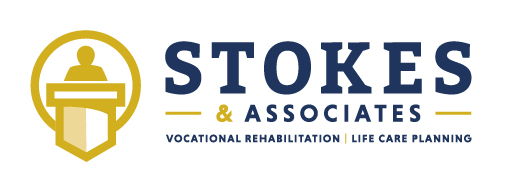Is Language Always a Barrier?
When conducting vocational evaluations, limited education, significant physical and/or cognitive restrictions, and remote labor market areas can complicate efforts to identify an evaluee’s future vocational potential. Another common challenge is coping with a “language barrier" of the person we are evaluating. This may include individuals who speak only their native language or have very limited knowledge of English. By communicating with the referral source, we can determine prior to our assessment if an interpreter is required to conduct the evaluation. It is preferable to engage an independent, certified interpreter to attend the evaluation.
We often learn that a person who says that they speak “no English” actually understands and communicates in English at some level, which is important in assessing whether language skills will affect the person's vocational future.
Here are questions we generally consider when assessing vocational factors when there is a language barrier:
How long has the individual lived in the United States if employed at the time of injury?
How were they able to communicate on the job?
What level of language is required for certain employment?
What is their current level of speaking and writing in the English language?
Has evaluee taken any classes such as English as a second language?
What resources are available to help them learn English as a second language?
Using answers to these key questions we can conduct labor market research to identify suitable jobs that can accommodate language issues. For example, job sites that employ same-language coworkers or supervisors are often good fits for workers with limited English. Additionally, the individual may be able to communicate enough in English to obtain and maintain employment. Similarly, many major metropolitan areas have communities that are ethnically diverse and have opportunities for supportive services and employment. Although language barriers do exist with some individuals we evaluate, conducting a thorough vocational assessment along with aggressive labor market research will determine what effect, if any, the language barrier has on the individual’s employability and wage earning capacity.
We offer complimentary consultations concerning "hypothetical matters." To strategize with one of our experts at Stokes & Associates, please call David Barrett at 504-454-5009 or email dbarrett@stokes-associates.com.
Larry S. Stokes, Ph.D.
Aaron Wolfson, Ph.D.
Todd Capielano, M.Ed., LRC, CRC, LPC, CLCP
Lacy Sapp, MHS, CRC, LPC, LRC, CLCP
